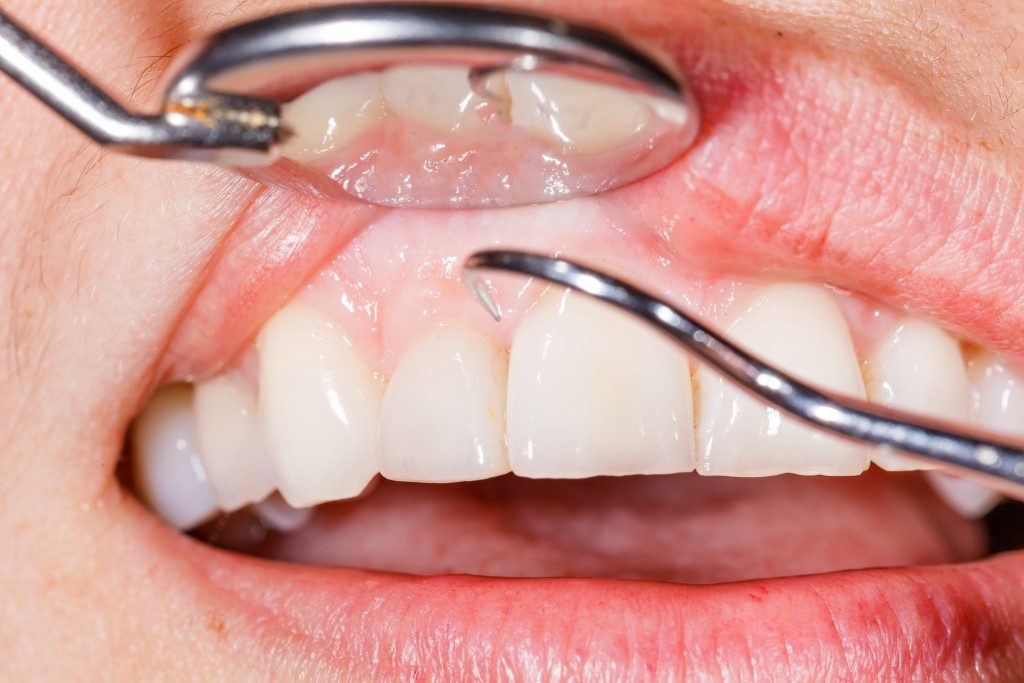Disclaimer: This website provides health information for educational purposes only and is not a substitute for professional medical advice, diagnosis, or treatment. Always seek the guidance of a qualified healthcare provider with any questions you may have.
Gingivitis is a common form of gum disease. It causes irritation, swelling, and redness around the base of your teeth. One of the most common reasons a person can get gingivitis is poor oral hygiene. Although they aren’t painful, gum diseases can cause a lot of problems if left untreated. But how do you know if you have one?
How to know if you have gingivitis
Although most people who have gingivitis don’t feel any pain, it still produces signs that are too obvious not to get noticed.
It often starts with traces of blood when you brush or floss a part of your teeth. Although it doesn’t hurt at all, the blood means that a part of your gums is already tender or swollen. Also, you’ll notice that the gums already have space between your teeth.
Soon, you’ll see a change with how your teeth fit together every time you bite. This could go on for several weeks until you notice that there’s pus forming between your teeth and gums.
Healthline says that you’ll also experience pain every time you chew. People with gingivitis also suffer from sensitive teeth and foul-smelling breath that remains persistent even after brushing your teeth. If the condition remains untreated, it may soon result in losing one’s teeth. Once that happens, you’ll have to undergo a dental implant in London to restore your smile.
It’s time to visit a dentist
If you notice any of these symptoms, then it’s time to visit the dentist. During the dental examination, the dentist will use a small dental ruler to probe the affected region of your gums. Doing so will help the dentist check the area for any inflammations as well as the pockets around your teeth. To ensure that he’ll be able to get accurate findings, he’ll also request for a few X-rays to check for any potential bone loss.
At this time, you can also speak with your dentist about any potential risk factors for gum disease. It’s also the best time to consult the dentist regarding any of the symptoms that you are experiencing. If the dentist discovers that the gingivitis is present, based on the dental examination, then there’s a chance that your dentist will refer you to a periodontist.
Other causes of gum disease
It’s not just poor dental hygiene that causes a person to develop gingivitis. Medical News Today says that people who are going through puberty or menopause are also prone to it. That’s because changes in hormones can cause the person’s gingiva to become more sensitive, thus raising the person’s risk of getting inflamed gums.
There are even medicines that can cause the person to be prone to gum disease. Anti-angina medications can cause a person to experience abnormal growth in gum tissues.
If you notice any signs of gum disease, then it’s best to reach out to your dentist immediately. Don’t attempt to self-medicate to avoid any chance of using the wrong medicine. Also, regularly practice excellent oral hygiene. Doing so will ensure that there aren’t any bacteria that might cause you to develop it.
